Part 2 of my African mission report is written in a different style. In an effort to share perfection reflections of my time in Africa, Reverend Juleen Partridge interviewed me as part of the Sunday Service. Here is a transcript of what I planned to share!
So, you’ve just returned from three weeks in Tanzania and Kenya. What did you actually do?
So there were two components of the mission trip. The first two weeks were assigned to a SOMA (Sharing of Ministries Abroad) mission trip within the Anglican Diocese of Central Tanganyika, in Tanzania. The final week I attended the CALL2ALL Strategic Summit in Kenya, focussing on learning how every disciple of Christ can reach the next generation with the good news of Jesus.
Let’s start at the beginning and talk about the SOMA Mission first. In a nutshell, the SOMA mission was designed to re-dig the ancient spiritual wells of revival that had been formed during the East African Revival which broke out in Rwanda in the 1930s, which rapidly grew within the Anglican Church in Tanzania and Kenya into the 1980s. While revival had been experienced decades ago, and many dioceses in Tanzania were in a season of rapid expansion due to ‘aggressive evangelism’, about eight bishops from Dioceses in Central Tanzania had requested SOMA to come back to their Diocese to re-dig these wells, bringing teaching on the ministry of the Holy Spirit to their clergy.
The mission followed a ‘train the trainer’ model, or more specifically, a ‘teach the teacher’ model.
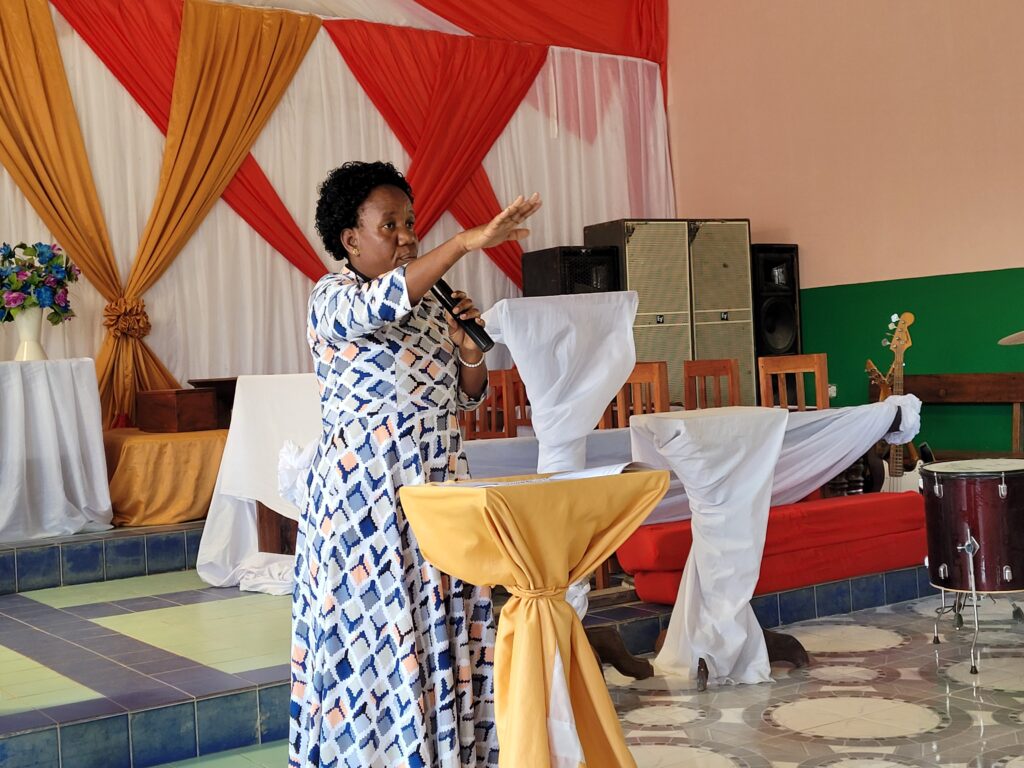
Each Bishop brought their best teachers to learn core teaching on eight topics: Holiness, Forgiveness, the Person of the Holy Spirit, Being filled with the Spirit, the Nine Spiritual gifts, the Healing Ministry, the Spirit Realm, Prophecy and Deliverance. Then, having learnt the core teaching, members of the SOMA team would return to each Diocese, with the Bishop, to teach the clergy in each of the deaneries, equipping the clergy to teach on the same subjects in their own congregations and parishes.
Here’s a video after my first day of teaching …
I was the team leader going to the Diocese of Rift Valley with Bishop John Lupaa. On my team was Rev Samuel from Kenya, Mama Bishop Lilian (who was the wife of Bishop Given), Ps Stella, who was also the Diocese Secretary and Canon Joseph, who also taught in the Bible College and Diocesan School. As you can see from the photo, I was the only ‘westerner’, the only one who couldn’t speak Swahili, so everything had to be translated. Most of our time was spent driving to churches, teaching in the church to both clergy and parishioners on the topics mentioned earlier, or walking through markets to and front the guesthouses in which we were staying. There were also activation sessions where both the clergy and parishioners applied what they were being taught, by breaking into groups or pairs and practicing on each other. I ran each of these activation sessions.
So, we know what you did the first two weeks. What aspects of your mission did you find most enjoyable?
Apart from being given the opportunity to teach on my favourite topics, I think it was talking and learning from the people I was with – Africans really are beautiful people.
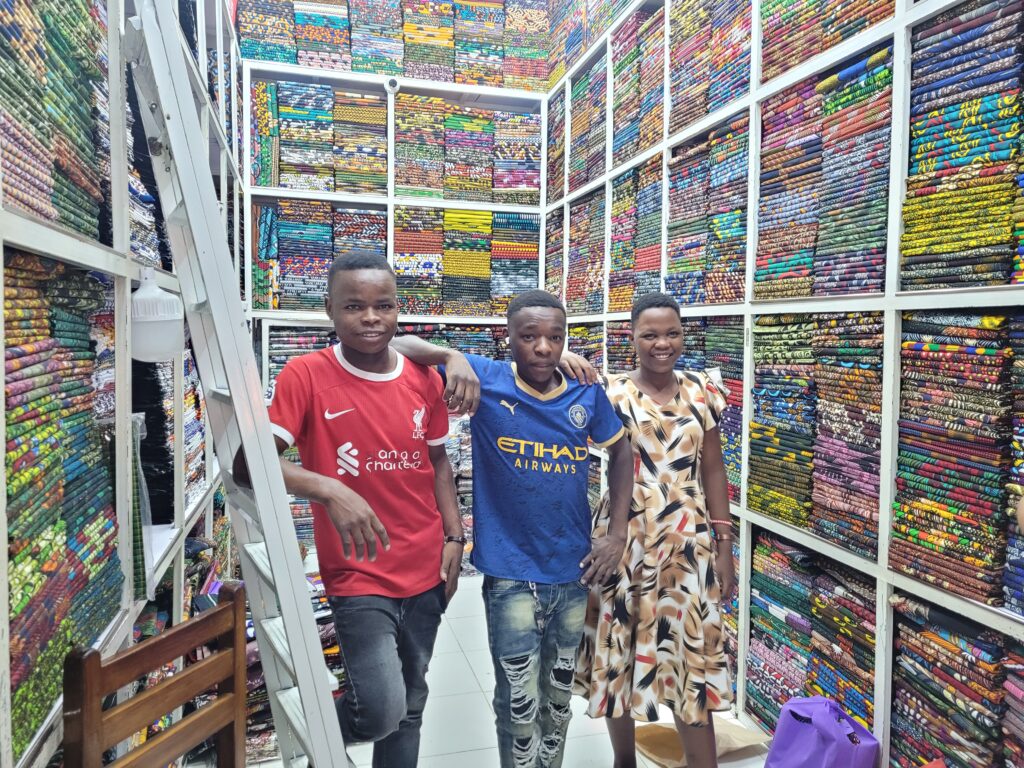
I was so impressed when I went to the market to buy some material to have some outfits made. In one shop there were three children aged from around 16 to 18 years. These young ones were in total charge of managing the shop, doing all the negotiating of price and sales. I wondered how many Australian 16 year olds would be put in charge of managing a shop.
I loved the worship and the exuberance of joy, dancing and clapping with which everyone engaged in the service. On Sunday worship there was usually many different choirs who ‘performed’ or led a song, all with choreographed movements. No matter what age, the women come out of the seats to join in dancing with the choirs. There were no overheads nor any hymn books, the leader just said the next line, and everyone joined in.
So were their aspects of the mission that you found challenging?
Oh, there were plenty!
To tell you the truth it is difficult to put into words all the ways I was personally challenged. Even though it has been almost a week, I’m still processing it all.
I think the impact was heightened by the fact that I was the only westerner on my team and I was always accompanied by local people, dining in their homes, and could ask any questions about why things were happening the way they did – so I really got an insider’s view.
- I found the poverty confronting – however, there was plenty of food and everyone was well-nourished, by a very basic diet of maize, rice, potatoes, and green vegetables. Children played in the dust and amongst the markets until all hours of the night – some sleeping on piles of hessian sacks.
- I found the difference in the standard of living quite challenging. I realised how much I take for granted my hot shower and the fact that if I turned on the tap, I expect water to appear – no such guarantee in Africa. While squat toilets don’t really bother me, some of the SOMA team members found this difficult.
- And this contrast of living really stood out when I needed to wash my clothes. Although Mama Bishop said it could be done for me for a nominal cost (thus supporting the local business of a church member), that didn’t work out. When she said, “It’s OK I’ll take care of it”, I just assumed she would. However, she disappeared only to later discover, she was handwashing my clothing in a bucket because that’s how she normally does it. She explained, “I’m still waiting for the Bishop to buy me a washing machine”. Although we chatted while she washed the clothes, I found the whole process quite embarrassing!
- I was impacted by how often the phrase ‘Bwana Asifiwe’ which means “Praise the Lord” was expressed. It really was the most repeated phrase over the entire three weeks. People said, ‘Praise the Lord’ when they greeted people, before they introduced themselves, and again and again during sermons, especially when transitioning from one point to the next. The praise of the Lord just poured from their lips.
- I was impacted by how satisfied and happy they were with the little they had. No one was concerned with what people wore, how people looked, how old or tattered their furniture was … living rooms were places to talk and pray and fellowship, not showplaces.
- I was impacted by how often the African’s prayed. We prayed when we started a journey, when we arrived, when we got inside the house, when we left the house, when we begun a meeting, when we ended a meeting, before we ate, and after we ate … and these weren’t just short prayers – they were long, passionate prayers – most of which I sadly couldn’t understand as they weren’t usually translated.
- I was impacted by how frequently the expressions of thanks over the goodness of God seemed to drip from their lips. As we walked along the dusty streets from the church to the guest house, we spoke about what God was doing in different people lives. While there was a TV present in the living room of the pastor, it was promptly turned off as soon as the meal was served.
- I was impacted by the care and nurture the bishop and his wife had for their ministers and families in their diocese. The bishop’s wives spent much of their time growing vegetables and fruit to give to people in their village, as they would often receive visitors asking for help.
- I learnt that many African clergy don’t receive a salary. When a church is planted, a church is built, with an accompanying small house, surrounded by plot of land. The minister was to use this land to grow food for his family. The bishop’s wives spent their time training clergy wives on how to start small businesses to assist in providing for their family. Yet they considered it an honour to serve the Lord. The verse in Ephesians 4:23 really came to life, “… they must work hard making an honest living, producing that which is good with their own hands, so they will have something to share with those in need.” I was convicted with how little time I devote to working to support the poor in my community.
- I was confronted when I saw women carrying large sacks of potatoes and vegetables on their head, all the while carrying a children in a sling on their back. One night we went for dinner at a restaurant. As we left to return to the guest house, there was a young mother with a basket holding two large thermoses of porridge and plastic cups. She had a baby in a sling on her back. This was her business to sell porridge to people – and she would do this until late in the night.
I was confronted when I was asked how the Anglican Church was going in Australia. The churches in Africa are bursting with people, families and children. When I tried to describe that our churches are very different, with many congregations not having families regularly attending, they asked me, “How did the church let that happen?” Explaining this shift in culture wasn’t easy.
So after the mission, what happened at the strategic summit?
So, Rev Henry Blair (from Northern Ireland) and I caught a plane to Nairobi, Kenya. We attended the Sunday Service in the Cathedral and met up with the Dean, and some of his clergy. He told us that on a Sunday over 5000 come to either of their four services.
Then the next day we caught a bus up the mountains to a town called Lumuru – which we had been warned was so cold you needed gloves and a beanie – anything less than 20 degrees was very cold for Africans!
It was an exciting atmosphere to sit in a room with over 380 Africans to learn how to strategically plan to reach the next generation with the gospel of Jesus Christ.
The worship was vibrant, lively with all participants (both men and women) dancing and waving their arms and singing in both English and Swahili. There were more than 50 different denominations and para-church organisations represented in the room.
The seminar started at 8 am and went all the way through to 8 pm for three days. It was quite full-on with much information being shared by many international speakers.
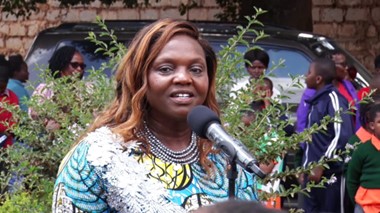
The message from the wife of the Vice-President, Pastor Dorcus Rigathi, profoundly impacted everyone. She spoke of how her faith prompted her to confront the injustices rampant in Kenyan society by helping the handicapped and vulnerable. She particularly focusses on the ‘boychild’, to ensure young boys are being nurtured and cared for. She really was a hugely inspiring woman who is using her influential position to benefit the whole community
Finally, although the summit was geared to the African context, all the resources recommended by the speakers could easily be applied to our Australia context. I found my head spinning with information and strategies on how to steer our ministries here at Southlakes to better accomplish Christ’s mission. There were many resources shared which I’ll speak more about over the coming months.
Overall, it was an incredibly life-changing experience. I want to thank you all for giving me the grace to have this time away, and I want to reassure you while the SOMA mission nurtured my own spiritual growth, the Summit especially equipped me with tools to grow our ministry in my own parish at Southlakes in Morisset (Australia), into the future.
Perhaps a good way to end, is with a short video from ‘Mama Bishop’ Rev Lilian, wife of Bishop Given from the Tanzanian Diocese of Kondoa.
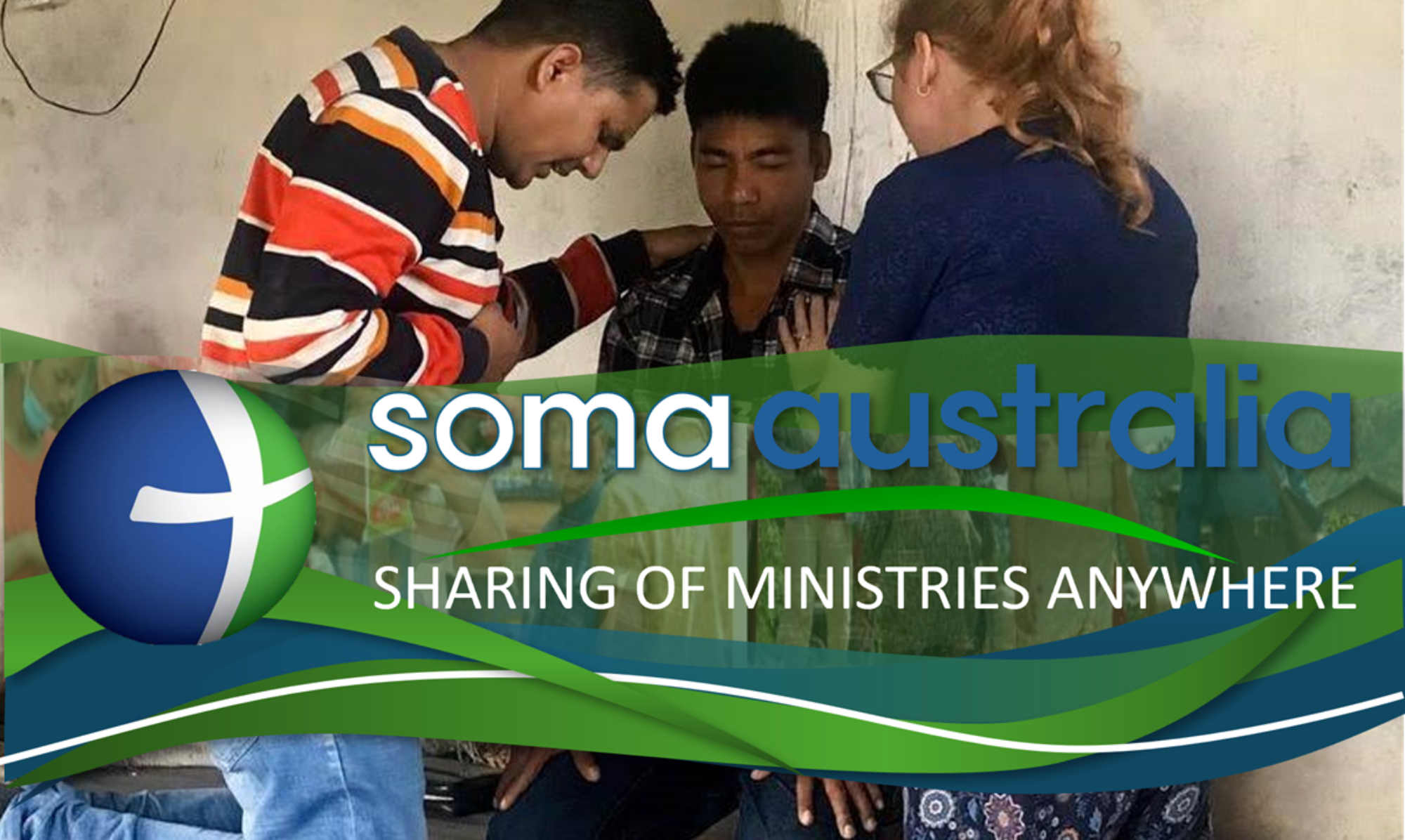
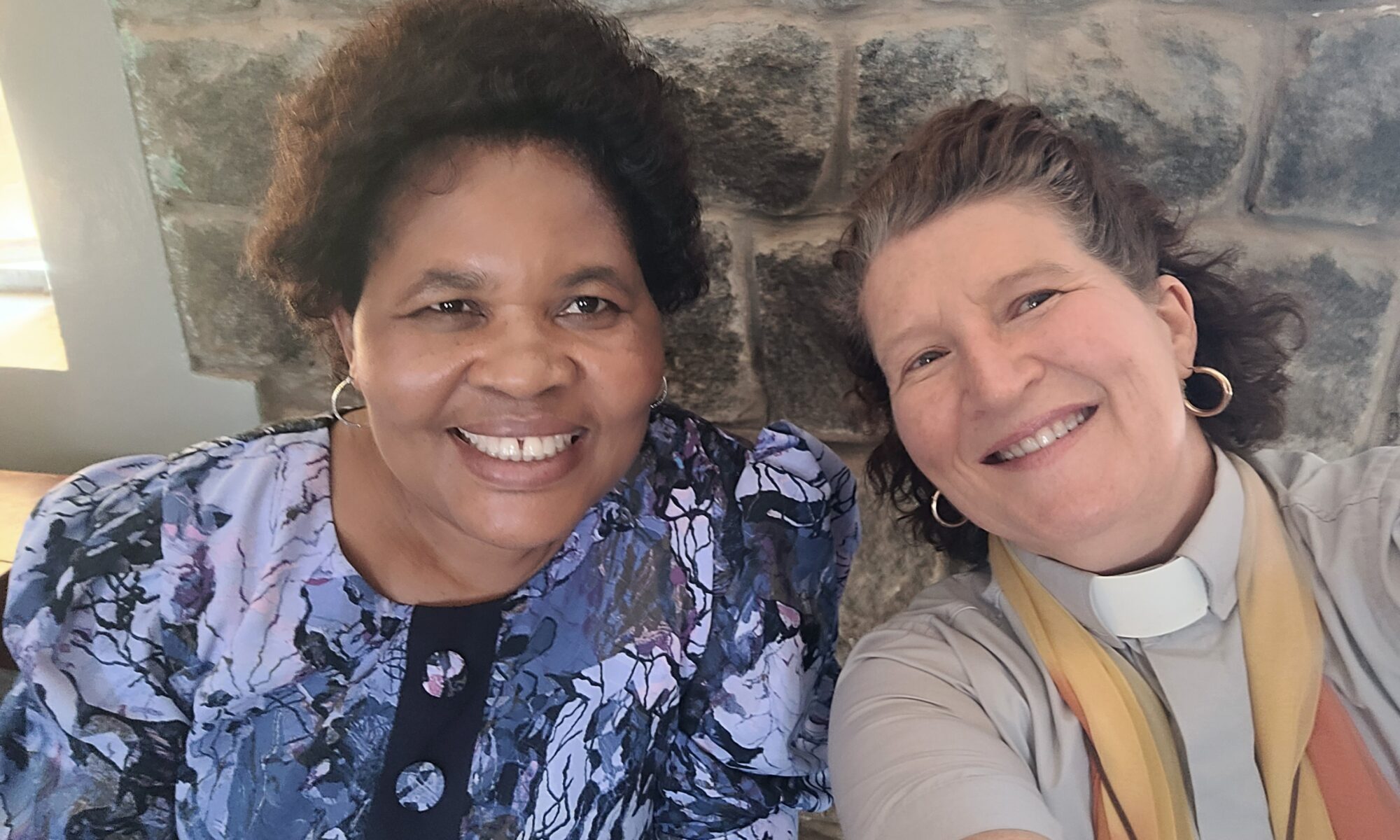
Thanks, Melinda. A very frank, informative, and inspiring report on what you have experienced, and the greatness of what God has been doing through his Holy Spirit. May it inspire your congregation, and prepare them for the Anglicans Ablaze Conference.